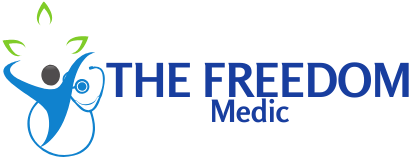Indubitably, developing a strong sense of integrity and ethics is crucial in today’s world. This quality can set you apart and help you succeed in both your personal and professional life. In order to cultivate integrity and ethics, it is important to first understand what these values entail. Integrity is the quality of being honest and having strong moral principles, while ethics refer to the set of moral principles that govern a person’s behavior or the conducting of an activity. There are several ways you can work on developing these qualities in yourself.
Foundations of Integrity
By developing a strong sense of integrity, you are setting yourself up for success in both your personal and professional life. Integrity is the foundation of trust and respect, and it is built upon a set of core principles and values that guide your behavior. These principles include honesty, transparency, consistency, and alignment between your beliefs and actions. By understanding and practicing these foundations of integrity, you can cultivate a reputation of reliability and trustworthiness.
Cultivating Honesty and Transparency
One of the key elements of integrity is honesty and transparency in all your actions and communications. This means being honest with yourself and others, even when it may be difficult or uncomfortable. It also requires being transparent about your actions and decisions, and being open to feedback and accountability. Cultivating honesty and transparency will not only build trust with those around you, but it will also contribute to your own sense of self-respect and confidence.
Developing Consistency Between Beliefs and Actions
Integrity requires consistency between your beliefs and your actions. This means living in alignment with your values and principles, even when faced with difficult decisions or temptations. It may be challenging at times, but staying true to your convictions will earn you the respect and trust of others. Developing this consistency also means being mindful of your actions and their impact on others, and making ethical decisions that reflect your values.

Ethical Decision-Making
Some of the most important aspects of developing a strong sense of integrity and ethics are ethical decision-making. It involves the process of evaluating and choosing among alternative actions based on ethical principles and values. This requires you to have a clear understanding of what constitutes ethical behavior and how to apply it in different situations. For a more in-depth look at ethical decision-making and how to develop strong work ethics, you can refer to this insightful article on How to Develop Strong Work Ethics: The Essential Tips for….
Identifying Ethical Dilemmas
One crucial aspect of ethical decision-making is the ability to identify ethical dilemmas in various scenarios. This involves recognizing situations in which you may be faced with conflicting values or interests. You must be able to identify when a decision has ethical implications and understand the potential consequences of different courses of action. This skill is essential for maintaining your integrity and making decisions that align with your values and those of your organization.
Utilizing Ethical Frameworks and Principles
Utilizing ethical frameworks and principles is another important aspect of ethical decision-making. Ethical frameworks provide a set of principles to guide your decision-making process, helping you to consider the broader impact of your actions and make choices that are aligned with ethical values. By utilizing these frameworks and principles, you can ensure that your decisions are not only legal and in line with company policies but also ethically sound and morally defensible. This is critical for maintaining your integrity and the trust of others in your personal and professional life.
Building Ethical Habits
Your integrity and ethical behavior are largely influenced by your habits. By developing strong ethical habits, you can ensure that you consistently make the right choices. One way to build ethical habits is to create a set of guidelines for yourself that you follow rigorously. These guidelines should reflect your personal values and the ethical standards that you believe in. Additionally, it can be helpful to seek out resources such as this article on 10 Strategies to Promote Integrity in the Workplace to gain insights into best practices for cultivating ethical behavior.
The Role of Accountability and Reflection
Accountability plays a crucial role in developing ethical habits. By holding yourself accountable for your actions, you are more likely to adhere to ethical standards. You can do this by regularly reflecting on your behavior and the decisions you make. This can help you identify areas where you may have fallen short and make adjustments accordingly. Setting aside time for self-reflection and seeking feedback from trusted colleagues can also provide valuable insights into your ethical conduct and help you stay on track.
Encouraging Ethical Behavior in Others
Encouraging ethical behavior in others is another important aspect of building ethical habits. By setting a positive example and promoting a culture of ethical conduct in your personal and professional circles, you can influence those around you to do the same. It’s important to communicate the importance of integrity and ethics and to support and recognize ethical behavior in others. By doing so, you create a positive environment that encourages everyone to uphold high ethical standards.
Overcoming Challenges to Integrity and Ethics
To develop a strong sense of integrity and ethics, you need to be prepared to face various challenges that may test your moral compass. These challenges can range from handling pressure and conflicting interests to resisting the slippery slope of ethical compromises. Overcoming these hurdles is essential in order to maintain your commitment to ethical behavior in both your personal and professional life.
Handling Pressure and Conflicting Interests
One of the biggest challenges to maintaining integrity and ethics is handling pressure from external sources and conflicting interests. You may find yourself in situations where you feel compelled to compromise your values in order to please others or achieve a desired outcome. It’s important to recognize that standing firm in your ethical beliefs may not always be easy, but it is essential for maintaining your integrity. Integrity in the Workplace: Definition and Examples can help you navigate through such situations and offer you guidance on how to handle pressure and conflicting interests in a professional setting.
Resisting the Slippery Slope of Ethical Compromises
Another challenge to integrity and ethics is resisting the slippery slope of ethical compromises. It can be tempting to gradually lower your ethical standards in the face of difficult circumstances, rationalizing small compromises as necessary for the greater good. However, once you start down this path, it can be difficult to regain your moral footing. You must be vigilant and recognize the warning signs of ethical erosion, and take proactive steps to prevent yourself from sliding down the slippery slope of compromises.
Developing a strong sense of integrity and ethics
So, the best ways to develop a strong sense of integrity and ethics include consistently making morally sound decisions, surrounding yourself with people who prioritize ethical behavior, and actively seeking out opportunities to demonstrate honesty and integrity. By regularly evaluating your actions and ensuring that they align with your personal code of ethics, you can build a strong foundation of integrity. Additionally, seeking guidance from mentors and continuously educating yourself on ethical principles and moral dilemmas will further strengthen your ethical compass. Remember, developing integrity and ethics is an ongoing process that requires perseverance and commitment, but the reward of earning trust and respect from others is invaluable.


